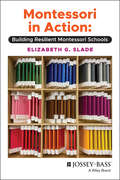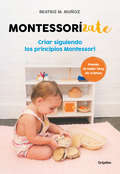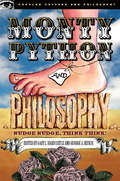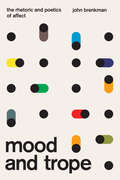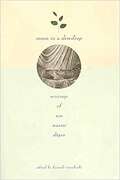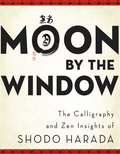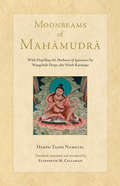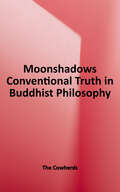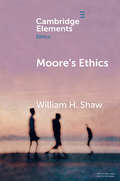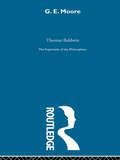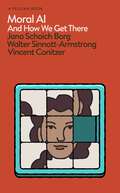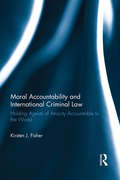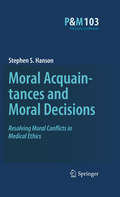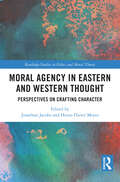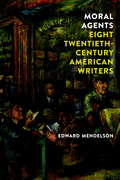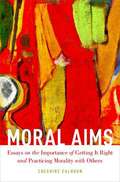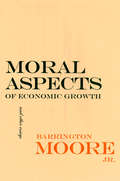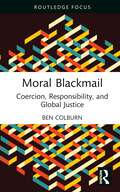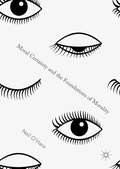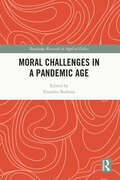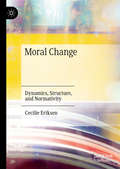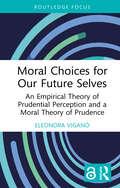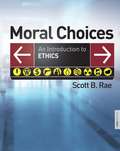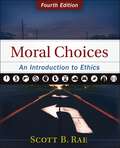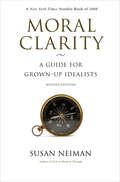- Table View
- List View
Montessori in Action: Building Resilient Montessori Schools
by Elizabeth G. SladeJoin the Revolution! Build a resilient Montessori school Montessori in Action: Building Resilient Montessori Schools delivers a practical and actionable method to provide a strong Montessori experience for all children, families and educators. The first of its kind, this book offers readers a collection of modern and concrete ways to build an equitable and resilient Montessori program, by discussing topics like: Working within the unique, complex ecosystem of Montessori to build a unified community empowered to serve the mission of the school Sharing ways to create a culture of honest conversation based on the values of growth and clarity Offering ways to build strong and resilient systems that will engage the whole community and yield results Perfect for Montessori educators and administrators of all kinds, Montessori in Action will support educators in taking action! This book provides structures, tools and timetables to strengthen and improve schools. It will also earn a place in the libraries of the parents of Montessori children who desire to create and maintain an equitable environment that benefits all students, regardless of their background.
Montessorízate: Criar siguiendo los principios Montessori
by Beatriz M. MuñozNos empeñamos en educar a nuestros hijos de la mejor manera posible, pero ¿y si fueran ellos quienes nos tienen que enseñar a nosotros? <P><P>Montessorízate es la guía definitiva para aplicar el método Montessori en casa. Después de su exitoso blog tigriteando.com, Beatriz M. Muñoz nos trae un libro repleto de consejos para adaptar el método Montessori al día a día en el hogar y empezar una pequeña revolución educativa en casa. <P> Con este nuevo enfoque, nuestros hijos se acostumbrarán a ser más autónomos y responsables. Este libro ofrece ideas y consejos que nos ayudarán a: <br>- Entender el comportamiento y las reacciones de nuestros hijos. <br>- Preparar el hogar para que nuestros hijos puedan desarrollarse con autonomía. <br>- Aprovechar cada día para aprender de los más pequeños de la casa. <P>Beatriz M. Muñoz pretende ayudar a todos los padres que prefieren que sus hijos aprendan a descubrir el mundo y a tomar decisiones por ellos mismos, pero que no saben por dónde empezar. En este libro nos acercaremos de forma sencilla y amena al método Montessori para incorporarlo poco a poco en nuestro hogar.
Monty Python and Philosophy
by William Irwin Gary L. Hardcastle George A. ReischFrom the 1970s cult TV show, Monty Python's Flying Circus, to the current hit musical Spamalot, the Monty Python comedy troupe has been at the center of popular culture and entertainment. The Pythons John Cleese, Graham Chapman, Eric Idle, Terry Jones, Michael Palin, and Terry Gilliam are increasingly recognized and honored for their creativity and enduring influence in the worlds of comedy and film. Monty Python and Philosophy extends that recognition into the world of philosophy. Fifteen experts in topics like mythology, Buddhism, feminism, logic, ethics, and the philosophy of science bring their expertise to bear on Python movies such as Monty Python's Life of Brian and Flying Circus mainstays such as the Argument Clinic, the Dead Parrot Sketch, and, of course, the Bruces, the Pythons' demented, song-filled vision of an Australian philosophy department. Monty Python and Philosophy follows the same hit format as the other titles in this popular series and explains all the philosophical concepts discussed in laymen's terms.
Mood and Trope: The Rhetoric and Poetics of Affect
by John Brenkman“Reconnect[s] affect studies with major issues in literary studies, philosophy, and aesthetics. . . . a fundamental contribution to this emergent field.” —Jonathan Culler, Cornell University, author of Structuralist PoeticsIn Mood and Trope, John Brenkman introduces two provocative propositions to affect theory: that human emotion is intimately connected to persuasion and figurative language; and that literature, especially poetry, lends precision to studying affect because it resides there not in speaking about feelings, but in the way of speaking itself.Engaging modern philosophers—Kant, Nietzsche, Heidegger, and Deleuze—Brenkman explores how they all approach the question of affect primarily through literature and art. He draws on the differences and dialogues among them, arguing that the vocation of criticism is incapable of systematicity and instead must be attuned to the singularity and plurality of literary and artistic creations. In addition, he confronts these four philosophers and their essential concepts with a wide array of authors and artists, including Pinter and Poe, Baudelaire, Jorie Graham and Li-Young Lee, Shakespeare, Tino Sehgal, and Francis Bacon. Filled with surprising insights, Mood and Trope provides a rich archive for rethinking the nature of affect and its aesthetic and rhetorical stakes.“Combining philosophical inquiry with brilliant interpretive readings, Brenkman, draws out the distinctive imbrications of mood and trope across a range of modern poetic projects.” —Amanda Anderson, Brown University, author of Psyche and Ethos“Brenkman shows us how literature has extended and deepened the possibilities of feeling and knowledge of feeling alike.” —Susan Stewart, Princeton University, author of The Open Studio: Essays on Art and Aesthetics“Eminently readable.” —Choice
Moon In A Dewdrop: Writings Of Zen Master Dogen
by Arnold Kotler David Schneider Philip Whalen Norman Fischer Dan Welch Robert Aitken Eihei Dogen Reb Anderson Kazuaki Tanahashi Katherine Thanas Ed Brown Daniel Leighton Lew Richmond Brian Unger Mel WeitsmanEihei Dogen (1200-1253), among the first to transmit Zen Buddhism from China to Japan and founder of the important Soto School, was not only a profoundly influential and provocative Zen philosopher but also one of the most stimulating figures in Japanese letters. Kazuaki Tanahashi, collaborating with several other Zen authorities, has produced sensitive and accurate translations of Dogen's most important texts. Moon in a Dewdrop contains the key essays of the great master, as well as extensive background materials that will help Western readers to approach this significant work. There is also a selection of Dogen's poetry, most of which has not appeared in English translation before. Dogen's thought runs counter to conventional logic, employing paradoxical language and startling imagery. It illuminates such fundamental concerns as the nature of time, existence, life, death, the self, and what is beyond self.
Moon by the Window
by Shodo Harada Roshi Priscilla Daichi Storandt Jane Shotaku Lago Tim Jundo WilliamsShodo Harada is internationally recognized both as a Zen teacher and as a world-class master of the fine art of Zen calligraphy. Harada regularly exhibits and gives calligraphy demonstrations in museums and universities in the U.S. and abroad. Accomplished Zen teachers from across the globe come to further plumb the depths of Zen through studying with him, earning him a reputation as "the roshi's roshi" - which is to say, the master's master. Moon by the Window is a beautiful collection of 108 pieces of Shodo Harada's calligraphic Zen masterpieces - assembled over decades, and drawn from the rich and poetic literature of the Zen tradition. Each work of art is accompanied by Harada Roshi's sharp and glittering commentaries, making each page a spiritually edifying and aesthetically uplifting treasure.
Moonbeams of Mahamudra (Tsadra Ser.)
by Dakpo Tashi NamgyalA new translation of Tibet's most important manual for Mahāmudrā view and meditationThis classic Buddhist work, written in the sixteenth century, comprehensively presents the entire scope of the Tibetan Kagyu Mahāmudrā tradition. These profound yet accessible instructions focus on becoming familiar with the nature of one’s mind as the primary means to realize ultimate reality and thus attain buddhahood. Dakpo Tashi Namgyal’s manual for the view and practice of Mahāmudrā is widely considered the single most important work on the subject, systematically introducing the view and associated meditation techniques in a progressive manner.Moonbeams of Mahāmudrā, along with the Ninth Karmapa Wangchuk Dorje’s Dispelling the Darkness of Ignorance, are to this day some of the most studied texts on Mahāmudrā in the Kagyu monasteries throughout Tibet and the Himalayas. Elizabeth M. Callahan, a renowned translator of classical Kagyu literature, has provided new translations of these two texts along with ancillary materials and annotations, making this a genuine resource for both scholars and students of Tibetan Buddhism. This historic contribution therefore offers the necessary tools to properly study and apply the Mahāmudrā teachings in a modern context.
Moonshadows: Conventional Truth in Buddhist Philosophy
by The CowherdsThe doctrine of the two truths—a conventional truth and an ultimate truth—is central to Buddhist metaphysics and epistemology. The two truths (or two realities), the distinction between them, and the relation between them are understood variously in different Buddhist schools and are of special importance to the Madhyamaka school. The fundamental ideas are articulated with particular force by Nagarjuna (2nd-3rd century CE) who famously claims that the two truths are identical to one another and yet distinct. One of the most influential interpretations of Nagarjuna's difficult doctrine derives from the commentary of Candrakirti (6th century CE). <p><p>While much attention has been devoted to explaining the nature of the ultimate truth in view of its special soteriological role, less has been paid to understanding the nature of conventional truth, which is often described as"deceptive," "illusion," or "truth for fools." But conventional truth is nonetheless the truth. This book, therefore, asks, "What is true about conventional truth?" and "What are the implications of an understanding of conventional truth for our lives?"
Moore's Ethics (Elements in Ethics)
by William H. ShawThis Element critically surveys the full range of G. E. Moore's ethical thought, including: (1) his rejection of naturalism in favor of the view that 'good' designates a simple, indefinable property, which cannot be identified with or reduced to any other property; (2) his understanding of intrinsic value, his doctrine of organic wholes, his repudiation of hedonism, and his substantive account of the most important goods and evils; and (3) his critique of egoism and subjectivism and his elaboration of a non-hedonistic variant of utilitarianism that, among other things, creatively blends aspects of act- and rule-oriented versions of that theory.
Moore-Arg Philosophers (Arguments Of The Philosophers Ser.)
by Thomas BaldwinFirst Published in 1999. Routledge is an imprint of Taylor & Francis, an informa company.
Moral AI: And How We Get There (Pelican Books)
by Walter Sinnott-Armstrong Jana Schaich Borg Vincent ConitzerA balanced and thought-provoking guide to all the big questions about AI and ethics Can computers understand morality? Can they respect privacy? And what can we do to make AI safe and fair? The artificial intelligence revolution has begun. Today, there are self-driving cars on our streets, autonomous weapons in our armies, robot surgeons in our hospitals – and AI's presence in our lives will only increase. Some see this as the dawn of a new era in innovation and ease; others are alarmed by its destructive potential. But one thing is clear: this is a technology like no other, one that raises profound questions about the very definitions of human intelligence and morality. In Moral AI, world-renowned researchers in moral psychology, philosophy, and artificial intelligence – Jana Schaich Borg, Walter Sinnott-Armstrong and Vincent Conitzer – tackle these thorny issues head-on. Writing lucidly and calmly, they lay out the recent advances in this still nascent field, peeling away the exaggeration and misleading arguments. Instead, they offer clear examinations of the moral concerns at the heart of AI programs, from racial equity to personal privacy, fake news to autonomous weaponry. Ultimately, they argue that artificial intelligence can be built and used safely and ethically, but that its potential cannot be achieved without careful reflection on the values we wish to imbue it with. This is an essential primer for any thinking person.
Moral Accountability and International Criminal Law: Holding Agents of Atrocity Accountable to the World
by Kirsten FisherThis book examines international criminal law from a normative perspective and lays out how responsible agents, individuals and the collectives they comprise, ought to be held accountable to the world for the commission of atrocity. The author provides criteria for determining the kinds of actions that should be addressed through international criminal law. Additionally, it asks, and answers, how individual responsibility can be determined in the context of collectively perpetrated political crimes and whether an international criminal justice system can claim universality in a culturally plural world. The book also examines the function of international criminal law and finally considers how the goals and purposes of international law can best be institutionally supported. This book is of particular interest to a multidisciplinary academic audience in political science, philosophy, and law, however the book is written in clear jargon-free prose that is intended to render the arguments accessible to the non-specialist reader interested in global justice, human rights and international criminal law.
Moral Acquaintances and Moral Decisions
by Stephen S. HansonThe potential of modern medicine in a pluralistic world leads to the potential for moral conflict. The most prevalent bioethical theories often either overestimate or underestimate the amount of shared moral belief that can be used to address those conflicts. This work presents a means for taking seriously the pluralism in the modern world while recognizing the likelihood of moral "acquaintance" between persons with differing views. It criticizes moral theories that overstate the extent of the problem of pluralism as well as those that imply too much agreement between reasonable moral persons, yet it locates a means for the resolution of many moral conflicts in moral acquaintanceship. Drawing from the work of H. Tristram Engelhardt, Jr., casuists and principle-based theorists, and Erich Loewy and Kevin W. Wildes's initial development of the concept of moral acquaintanceship, Moral Acquaintances and Moral Decisions is philosophically indepth work with direct applications for decisionmaking in real medical settings. A work in moral theory as well as a source of real world guidance, clinically oriented bioethics professionals as well as students of bioethical theory should find the theory of moral acquaintanceship provided here important to their work.
Moral Agency in Eastern and Western Thought: Perspectives on Crafting Character (Routledge Studies in Ethics and Moral Theory)
by Jonathan Jacobs and Heinz-Dieter MeyerThis volume explores how individuals use moral agency to craft the moral dispositions and moral capabilities needed for living well-lived lives. It draws on Eastern and Western philosophical and ethical traditions to formulate and address key issues concerning character development and moral agency.In both Eastern and Western traditions, the complexities of shaping an individual’s moral agency focus on sustained processes of inner self-cultivation. The chapters in this volume highlight the ways in which one is to manage and direct one’s desires and aspirations, and what is to count as the source of guidance for a well-lived life. They engage with key figures and traditions in the history of Eastern and Western philosophy, including Confucian, Buddhist, and Western sources, from Aristotle to Kant. The juxtaposition of sources from the different parts of the world highlights striking similarities and significant contrasts and provides rich conceptual resources for further exploration of these issues. The volume provides a broader, deeper pursuit of central issues of moral psychology and ethics in ways that highlight the inexhaustible resources in these traditions. The focus on character is a way to draw together perspectives on ethical life, theories of human agency, views of fundamental, life-guiding values, and relations between individuals and society and how persons see their place in the world.Moral Agency in Eastern and Western Thought will appeal to scholars and advanced students working on virtue ethics, moral psychology, comparative philosophy, and history of philosophy.
Moral Agents: Eight Twentieth-Century American Writers
by Edward MendelsonA deeply considered and provocative new look at major American writers--including Saul Bellow, Norman Mailer, and W.H. Auden--Edward Mendelson's Moral Agents is also a work of critical biography in the great tradition of Plutarch, Samuel Johnson, and Emerson. Any important writer, in Mendelson's view, writes in response to an idea of the good life that is inseparable from the life the writer lives. Fusing biography and criticism and based on extensive new research, Moral Agents presents challenging new portraits of eight writers--novelists, critics, and poets--who transformed American literature in the turbulent twentieth century. Eight sharply distinctive individuals--inspired, troubled, hugely ambitious--who reimagined what it means to be a writer. There's Saul Bellow, a novelist determined to rule as a patriarch, who, having been neglected by his father, in turn neglected his son in favor of young writers who presented themselves as his literary heirs. Norman Mailer's extraordinary ambition, suppressed insecurity, and renegade metaphysics muddled the novels through which he hoped to change the world, yet these same qualities endowed him with an uncanny sensitivity and deep sympathy to the pathologies of American life that make him an unequaled political reporter. William Maxwell wrote sad tales of small-town life and surrounded himself with a coterie of worshipful admirers. As a powerful editor at The New Yorker, he exercised an enormous and constraining influence on American fiction that is still felt today. Preeminent among the critics is Lionel Trilling, whose Liberal Imagination made him a celebrity sage of the anxiously tranquilized 1950s, even as his calculated image of Olympian reserve masked a deeply conflicted life and contributed to his ultimately despairing worldview. Dwight Macdonald, by contrast, was a haute-WASP anarchist and aesthete driven by an exuberant moral commitment, in a time of cautious mediocrity, to doing the right thing. Alfred Kazin, from a poor Jewish émigré background, remained an outsider at the center of literary New York, driven both to escape from and do justice to the deepest meanings of his Jewish heritage. Perhaps most intriguing are the two poets, W.H. Auden and Frank O'Hara. Early in his career, Auden was tempted to don the mantle of the poet as prophet, but after his move from England to America he lived and wrote in a spirit of modesty and charity born out of a deeply idiosyncratic understanding of Christianity. O'Hara, tireless partygoer and pioneering curator at MoMA, wrote much of his poetry for private occasions. Its lasting power has proven to be something different from its avant-garde reputation: personal warmth, individuality, rootedness in ancient traditions, and openness to the world.
Moral Aims: Essays on the Importance of Getting It Right and Practicing Morality with Others
by Cheshire CalhounWe rely on two different conceptions of morality. On the one hand, we think of morality as a correct action guide. Morality is accessed by taking up a critical, reflective point of view where our concern is with identifying the moral rules that would be the focus of the requiring activities of persons in a hypothetical social world whose participants were capable of accessing the justifications for everyone's endorsing just this set of rules. On the other hand, in doing virtually anything connected with morality--making demands, offering excuses, justifying choices, expressing moral attitudes, getting uptake on our resentments, and the like-we rely on social practices of morality and shared moral understandings that make our moral activities and attitudes intelligible to others. This second conception of morality, unlike the first, is not shaped by the aim of getting it right or the contrast between correct and merely supposed moral requirements. It is shaped by the moral aim of practicing morality with others within an actual, not merely hypothetical, scheme of social cooperation. If practices based on misguided moral norms seem not to be genuine morality under the first conception, merely hypothetical practices seem not to be the genuine article under the second conception. The premise of this book, which collects together nine previously published essay and a new introduction, is that both conceptions are indispensable. But exactly how is the moral theorist to go about working simultaneously with two such different conceptions of morality? The book's project is not to construct an overarching methodology for handling the two conceptions of morality. Instead, it is to provide case studies of that work being done.
Moral Aspects of Economic Growth, and Other Essays (The Wilder House Series in Politics, History and Culture)
by Barrington Moore Jr.Barrington Moore, Jr., one of the most distinguished thinkers in critical theory and historical sociology, was long concerned with the prospects for freedom and decency in industrial society. The product of decades of reflection on issues of authority, inequality, and injustice, this volume analyzes fluctuating moral beliefs and behavior in political and economic affairs at different points in history, from the early Middle Ages in England to the prospects for liberalism under twentieth-century Soviet socialism. The social sources of antisocial behavior; principles of social inequality; and the origins, enemies, and possibilities of rational discussion in public affairs—these are among the topics Moore considers as he seeks to uncover the historical causes of some accepted forms of morality and to assess their social consequences.The keynote essay examines how moral codes grew out of commercial practices in England from medieval times through the industrial revolution. Moore pays special attention to conceptions of honesty and the temptation to evade that inform the volume as a whole. In the other essays, he considers particular political issues, viewing "political" in its broadest sense as an unequal distribution of power and authority that carries a strong moral charge. Free of preaching and advocacy, his work offers a rare reasonable assessment of the morality of major social institutions over time.
Moral Blackmail: Coercion, Responsibility, and Global Justice (Routledge Focus on Philosophy)
by Ben ColburnMoral Blackmail: Coercion, Responsibility, and Global Justice identifies a novel kind of forced action, yet one that is relatively neglected in ethics and moral philosophy. Moral blackmail occurs when someone is forced to do something because someone else has made all its alternatives morally unacceptable.Ben Colburn explores moral blackmail by first examining existing theories of coercion, responsibility, and voluntary action, and defending its existence from various sceptical metaethical arguments, before arguing that moral blackmail's significance is not limited to the interpersonal: it is also endemic in the structures of distribution and decision-making at the largest scale. To show this, he considers two problems in intergenerational and international justice: the problem of ‘passing the buck’ in environmental and population policies in the former, and the problem of ‘taking up the slack’ in situations of partial compliance with the demands of the latter. Recognising these as instances of moral blackmail writ large offers novel solutions to these long-standing philosophical problems, as well as offering proof in use of the account Colburn proposes.Moral Blackmail will be of interest to those studying and researching political philosophy, ethical theory, applied ethics, and politics.
Moral Certainty and the Foundations of Morality
by Neil O’HaraWhat lies at the foundation of our moral beliefs? If we dig down far enough do we find that our moral values have no ground at all to stand on, and so are apt to collapse upon serious philosophical investigation? This book seeks to answer these and related questions by positing an indubitable foundation for our moral beliefs – they arise from the phenomenon of ‘primary recognition’, and are fundamentally shaped by ‘basic moral certainties’. Drawing on philosophers such as Ludwig Wittgenstein and Knud Ejler Løgstrup, this book draws together insights from both Analytic and Continental philosophy to provide a convincing new picture of our moral foundations. And it does so in a way that eschews moral conservativism and opens the way for a rich understanding of the variety and particularity of our human moral systems, while also keeping a significant place for those moral beliefs that occur universally, across cultures.
Moral Challenges in a Pandemic Age (Routledge Research in Applied Ethics)
by Evandro BarbosaThe COVID-19 pandemic, whose consequences will be felt in the long term, can be interpreted as a signal that we have been living in a pandemic age. A pandemic is humanity's common ground, so the moral problems inherent in it are of interest to everyone from now on. It brought a set of moral challenges that cannot be ignored. This book – which emerged amid the novel coronavirus crisis – is designed to fill the gap in the current literature on the topic, offering an original approach to its moral implications. It can be taken as a guide in the face of these pandemic-age challenges for human relations. The pandemic is a multifaceted phenomenon, and its debate involves a wide variety of practical philosophical concerns. All the chapters of this book, divided into four sections, aim to clarify its central aspects, while each chapter provides an original approach to the debate’s leading issues and relies on each most significant collaborator’s expertise. Also, they reflect their unique pandemic experiences under the scrutiny of philosophical unrest. Since the pandemic is an ongoing event, Moral Challenges in a Pandemic Age will be of interest to professors, students, and researchers engaged in understanding the ethical dimension of the age we are experiencing. The problems addressed in this collection transcend the boundaries of the philosophical field, offering an innovative approach to individuals keen on discussing the pandemic from a moral point of view. Such a discussion encompasses the philosophical inquiry but is not restricted to it. Those interested in related areas such as psychology, sociology, biology, public health, education, anthropology, and cultural studies – to name a few – will find connections with parallel themes in this book. In addition, the collection brings a theoretically supported approach to several related debates in a language accessible to anyone who wants to know more about the topic.
Moral Change: Dynamics, Structure, and Normativity
by Cecilie EriksenHow does moral change happen? What leads to the overthrow or gradual transformation of moral beliefs, ideals, and values? Change is one of the most striking features of morality, yet it is poorly understood. In this book, Cecilie Eriksen provides an illuminating map of the dynamics, structure, and normativity of moral change. Through eight narratives inspired by the legal domain and in dialogue with modern moral philosophy, Eriksen discusses moral bias, conflict, progress, and revolutions. She develops a context-sensitive understanding of ethics and shows how we can harvest a knowledge of the past that will enable us to build a better future.
Moral Choices for Our Future Selves: An Empirical Theory of Prudential Perception and a Moral Theory of Prudence (Routledge Focus on Philosophy)
by Eleonora ViganòThis book investigates the relationship between our present and future selves. It focuses specifically on diachronic self-regarding decisions: choices involving our earlier and later selves, in which the earlier self makes a decision for the later self. The author connects the scientific understanding of the neurobehavioral processes at the core of individuals’ perceptions of their future selves with the philosophical reflection on individuals’ moral relationship with their future selves. She delineates a descriptive theory of the perception of the future self that is based on empirical evidence and that systematizes and integrates the current theoretical literature. She then argues for the morality of prudence and interprets diachronic self-regarding decisions as decisions between two agents— the earlier and later selves—that belong to the realm of intergenerational ethics, which regulates the relationship between contemporary people and future generations. Finally, the author provides a moral theory of prudence based on respect for one’s agency. This theory identifies what the present and the future selves owe to one another in diachronic self-regarding decisions. Moral Choices for Our Future Selves will be of interest to scholars and students working in ethics, moral psychology, philosophy of mind, and cognitive science.
Moral Choices: An Introduction to Ethics
by Scott B. RaeNow in its third edition, this foremost college ethics text helps students form a basis for practical, ethical decision making in contemporary culture. Substantial updates and revisions include a new chapter on ethics and economics, online resources for instructors, current case studies, new material on bioethics and stem cell research, and much more.
Moral Choices: An Introduction to Ethics
by Scott RaeWith its unique union of theory and application and its well-organized, easy-to-use design, Moral Choices has earned its place as the standard text for college ethics courses. This fourth edition offers extensive updates, revisions, and three brand new chapters all designed to help students develop a sound and current basis for making ethical decisions in today's complex postmodern culture.Moral Choices outlines the distinctive elements of Christian ethics while avoiding undue dogmatism. The book also introduces other ethical systems and their key historical proponents, including Plato, Aristotle, Augustine, Thomas Aquinas, and Immanuel Kant.After describing a seven-step procedure for tackling ethical dilemmas, author Scott Rae uses case studies to address some of today's most pressing social issues. He guides students in thinking critically and biblically about issues, including:AbortionReproductive TechnologiesEuthanasiaCapital PunishmentSexual EthicsThe Morality of WarGenetic Technologies and Human CloningEthics and EconomicsNEW: Creation CareNEW: Animal RightsNEW: Gun-ControlNEW: Race, Gender, and DiversityNEW: Immigration, Refugees, and Border ControlFEATURESRelevant Case Studies throughoutDiscussion questions at the end of each chapterSidebars with case studies for discussionRecommended further reading
Moral Clarity: A Guide for Grown-Up Idealists (Revised Edition)
by Susan NeimanAn inspiring and jargon-free look at how morals guide and inform our lives Moral philosopher Susan Neiman makes the tools of her trade relevant to real life inMoral Clarity, steering us clear of political dogma to offer instead a framework for forming clear opinions and taking responsible action on today’s urgent political and social questions. Neiman reaches back to the classic virtues—happiness, reason, reverence, and hope—that were held high by every Enlightenment thinker and draws on literature, evolutionary theory, and contemporary research to show that the pursuit of moral clarity is open to all who are committed to these ideals, believers and nonbelievers alike.
